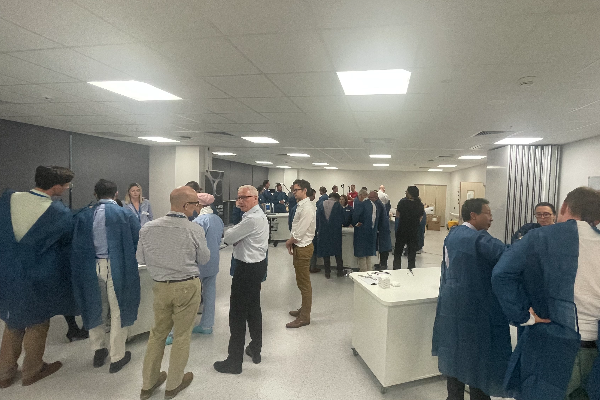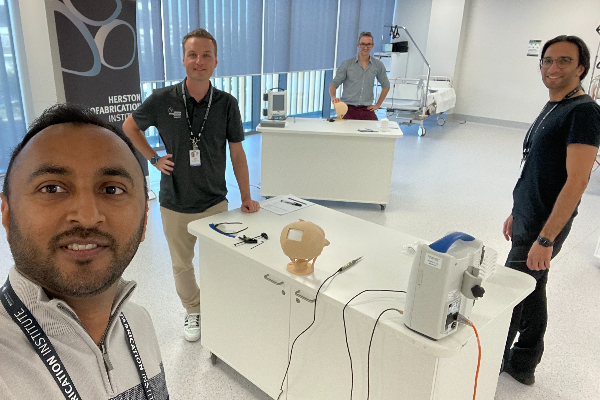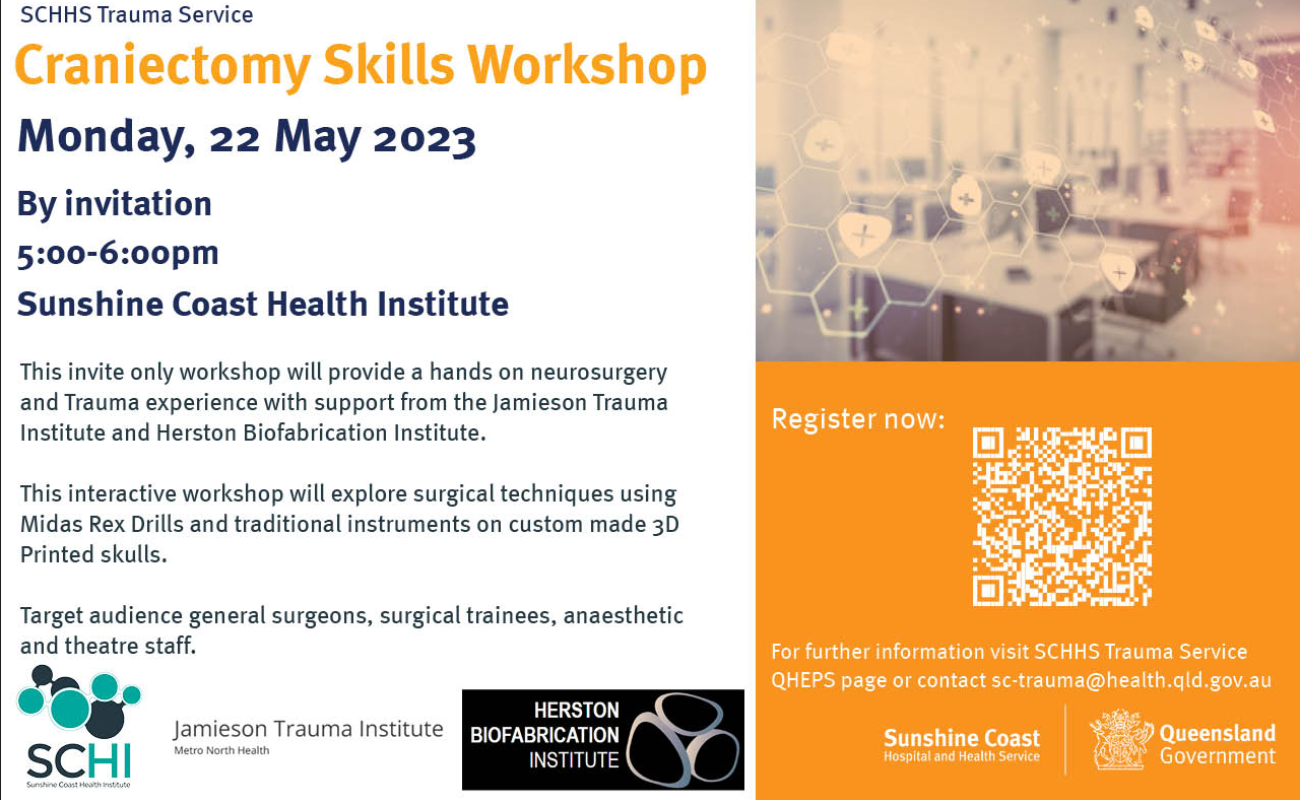HBI Craniofacial bring 3D printed training models to bespoke craniectomy workshop
Neurotrauma seminar explores traumatic brain injuries on the Sunshine Coast
HBI CranioFacial Program’s Dr James Novak and PhD students: Roozbeh Fakhr, Nalinda Dissanayaka host a bespoke craniectomy skills workshop for surgeons, anaesthetic and theatre staff using 3D printed skulls manufactured by the Herston Biofabrication Institute and equipment supplied by Medtronic. The workshop was conducted with collaboration with The Sunshine Coast Health Trauma Service and the Royal Brisbane and Women’s Hospital (RBWH) Neurosurgical Department. The seminar was conducted to explore the critical decision making in neurotrauma at Sunshine Coast University Hospital (SCUH).
In 2022, the Sunshine Coast University Hospital (SCUH) was the third busiest trauma service in the state, with more than 400 major life changing traumas being managed by our multi-disciplinary team of medical, nursing and allied health specialists.
“Currently, after initial management in our heath service certain types of traumatic brain injuries will need to be transferred, by ambulance or helicopter, to Brisbane for specialist neurosurgical care not available at SCUH,” Dr Hobbins King said.
“This event highlights the collaborative nature of trauma care from resuscitation to rehabilitation and represents another step forward in the journey to SCUH becoming a Level Two Major Trauma Service that can provide the full spectrum of trauma care to our growing population on the Sunshine Coast.”
The SCUH is classified as a regional hospital, servicing a large area without a dedicated neurosurgery department. 30 staff participated in the practical workshop, upskilling and improving their confidence in neurotrauma procedures to improve care for the community. Data collected about the 3D printed models will soon be published, and the CranioFacial team can be contacted to discuss ordering 3D printed head models for similar training events.
The training models used in this event were designed by Roozbeh Fakhr and Nalinda Dissanayaka in partnership with HBI CranioFacial. They are 3D printed with a variety of printing technologies at the HBI Lab and The University of Queensland’s Maker Space- UQInnovate.



